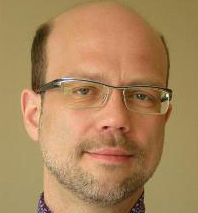Michael Oertel, PhD
Dr. Michael Oertel is an Associate Professor of Pathology, Division of Experimental Pathology, Department of Pathology, and a member of the Liver Research Center at the University of Pittsburgh. He received his education at the University of Leipzig, Germany, obtaining his PhD there in 2000. Dr. Oertel was a Research Associate at Yeshiva University, Albert Einstein College of Medicine, Marion Bessin Liver Research Center, Bronx, New York. Following his post-doctoral work, Dr. Oertel held several academic positions at Yeshiva University.
Dr. Oertel’s research interests include treatments for end stage liver disease. The only currently available treatment for end stage liver disease is liver transplantation. Since the number of patients on the liver transplant list far exceeds the number of donor organs available, alternative treatment methods, such as hepatic cell transplantation, are under intensive investigation. Therefore, a major goal of his studies is to repopulate the injured/diseased liver by cell transplantation using various cell types (e.g., fetal liver stem/progenitor cells, enriched stem cell populations, mature hepatocytes, etc.).
Several years ago, Dr. Oertel and colleagues discovered that fetal liver stem/progenitor cells can sufficiently replace hepatic mass in the normal rat liver through cell competition. Their studies suggest that activin A (a prominent autocrine regulator of hepatocyte growth arrest) in the host liver creates a tissue microenvironment favoring replacement of hepatocytes by transplanted stem/progenitor cells. Moreover, Dr. Oertel and his team demonstrated Proof-of-Concept that cellular therapies can lead to restoration of injured parenchyma in hepatic microenvironments with advanced fibrosis, using experimental conditions that reflect circumstances similar to human fibrosis/cirrhosis. They also showed that biliary fibrosis stimulates liver repopulation by ectopically transplanted hepatocytes, as well as hepatocyte transition towards a biliary epithelial phenotype. Most recently, Dr. Oertel’s team demonstrated that biliary obstruction promotes multilineage differentiation of ectopically transplanted hepatic stem cells. Thus, a long-term objective of their research is to study novel cell transplantation strategies and elucidate basic mechanisms, necessary for successful tissue replacement. Furthermore, current studies are focused on identifying and modulating signaling pathways in hepatocytes that drive tissue repair leading to restoration of functional hepatic mass and reversal of fibrosis.
A list of Dr. Oertel’s publications can be found here.

